Best movies like The Count of Luxembourg
A unique, carefully handpicked, selection of the best movies like The Count of Luxembourg Starring Eberhard Wächter, Lilian Sukis, Erich Kunz, Peter Fröhlich, and more. If you liked The Count of Luxembourg then you may also like: Viennese Spirit, Viennese Nights, Waltzes from Vienna, Aren't We Wonderful, Opera Ball and many more popular movies featured on this list. You can further filter the list even more or get a random selection from the list of similar movies, to make your selection even easier.
Der Graf von Luxemburg (The Count of Luxembourg) is an operetta in three acts by Franz Lehár to a German libretto by Alfred Willner, Robert Bodanzky, and Leo Stein. A Viennese take on bohemian life in Paris at the beginning of the 20th century, the story revolves around an impoverished aristocrat and a glamorous opera singer who have entered into a sham marriage without ever seeing each other and later fall in love at first sight, unaware that they are already husband and wife.
You may filter the list of movies on this page for a more refined, personalized selection of movies.
Still not sure what to watch click the recommend buttun below to get a movie recommendation selected from all the movies on this list
Viennese Nights
In 1890, Gus Sascher joins the Austrian Army and romances the impoverished girl Elsa Hofner. Elsa instead marries the wealthier officer Franz von Renner, in an attempt at social climbing.
Aren't We Wonderful
Kurt Hoffmann′s satire concerning Germany′s development during the first half of the 20th century tells the story of two schoolmates - Hans and Bruno. They could not be more different. While Hans is ambitious and must always work hard for his career, it seems that the happy go lucky Bruno is carefree.
Opera Ball
After the operetta of the same name of Richard Heuberger in 1890-1914 all kinds of situation comic from happy-go-lucky Vienna of the turn of the century, the time of the first cars and the absurd bath costumes: Husbands in the Chambre Separee, her little dizziness and mistake plays, the tumultuous whirl of a grand ball... - A high-spirited comedy at considerable entertainment level.
Bitter Sweet
In order to avoid an arranged marriage with a man she doesn't love, Sarah Millick runs off to Vienna with her music teacher, Carl Linden, whom she does love. They are married. In Vienna, they struggle to make a living by making music. Carl writes an operetta and tries to get it produced. They are helped along by Viennese Baron, but his intentions are not honorable. He kills Carl in a sword fight. A big producer does put on the operetta, with Sari in the lead -- but without her husband, it is a bittersweet victory.
The Scarlet Pimpernel
18th century English aristocrat Sir Percy Blakeney leads a double life. He appears to be merely the effete aristocrat, but in reality is part of an underground effort to free French nobles from Robespierre's Reign of Terror.
Colette
After marrying a successful Parisian writer known commonly as Willy, Sidonie-Gabrielle Colette is transplanted from her childhood home in rural France to the intellectual and artistic splendor of Paris. Soon after, Willy convinces Colette to ghostwrite for him. She pens a semi-autobiographical novel about a witty and brazen country girl named Claudine, sparking a bestseller and a cultural sensation. After its success, Colette and Willy become the talk of Paris and their adventures inspire additional Claudine novels.
The Merry Widow
Marshovia, a small European kingdom, is on the brink of bankruptcy but the country may be saved if the wealthy American Crystal Radek, widow of a Marshovian, can be convinced to part with her money and marry the king's nephew count Danilo. Arriving to Marshovia on a visit, Crystal Radek change places with her secretary Kitty. Following them to Paris, Danilo has a hard time wooing the widow after meeting an attractive young woman at a nightclub, the same Crystal Radek who presents herself as Fifi the chorus girl. Plot by Mattias Thuresson.
The Mikado
In a small Japanese town, Ko-Ko is appointed to the unenviable position of executioner. Knowing he must successfully perform before the appearance of the Mikado in a month's time, Ko-Ko finds a suitable victim in Nanki-Poo, who is distraught over his unrequited love for the maiden Yum-Yum. Nanki-Poo agrees to sacrifice his life if he is allowed to spend his remaining days with Yum-Yum, who is betrothed to Ko-Ko.
Sin Takes a Holiday
Dowdy Sylvia accepts her boss' marriage proposal, even though he only asked her to avoid marriage to another woman. As a wealthy wife, Sylvia changes from ugly duckling to uninhibited swan and even contemplates having an affair with a man she meets during a trip to Paris.
Tevye
Tevye is a dairyman in the Russian Ukraine early in the 20th century. He lives in a cabin outside Boyberik with his wife Goldie, his widowed daughter Tseytl, her two children, and his younger daughter, the unmarried Khave. Khave is being courted by Fedya, a Christian, the son of a local government official. Tevye warns Khave against romance and marriage outside her faith, but Fedya is persuasive too. What will Khave decide, how will Tevye react, and when the Tsar initiates a pogrom, will Tevye's friends come to his defense? Can the stubborn Tevye reconcile his heart and tradition?
Summer in February
The Newlyn School of artists flourished at the beginning of the 20th Century and the film focuses on the wild and bohemian Lamorna Group, which included Alfred Munnings and Laura and Harold Knight. The incendiary anti-Modernist Munnings, now regarded as one of Britain's most sought-after artists, is at the centre of the complex love triangle, involving aspiring artist Florence Carter-Wood and Gilbert Evans, the land agent in charge of the Lamorna Valley estate. True - and deeply moving - the story is played out against the timeless beauty of the Cornish coast, in the approaching shadow of The Great War.
The Dancing Years
The episodic story of a composer of operettas, Rudi Kleiber, in in old Viennese days, and the two women in his life; Maria Zeitler, his sweetheart, later mistress, lost love, an operetta star, and his first patron, and the mother of a son he did not know he had; and of Greta, his first love and companion in later years
The Great Victor Herbert
In his last film assignment, portly Walter Connolly fills the title role (in more ways than one) in The Great Victor Herbert. Very little of Herbert's life story is incorporated in the screenplay (a closing title actually apologizes for the film's paucity of cold hard facts); instead, the writers allow the famed composer's works to speak for themselves. In the tradition of one of his own operettas, Herbert spends most of his time patching up the shaky marriage between tenor John Ramsey (Allan Jones) and Louise Hall (Mary Martin). Many of Herbert's most famous compositions are well in evidence, including "Ah! Sweet Mystery of Life", "March of the Toys" and "Kiss Me Again", the latter performed con brio by teenaged coloratura Susanna Foster. Evidently, the producers were able to secure the film rights for the Herbert songs, but not for the stage productions in which they appeared, which may explain such bizarre interpolations as having a song from Naughty Marietta.
Take My Life
When her husband is wrongly accused of murder, an opera singer sets out to find the real culprit.
Der Richter und sein Henker
The old and sick detective superintendent Bärlach has to investigate the murder of his colleague Ulrich Schmied, who was murdered in the middle of the country road.
The Three from the Filling Station
Die Drei von der Tankstelle, meaning The Three from the Gas Station, was advertised as a German operetta when release and with it’s star studded cast would become the forerunner of Musical films. Even today the soundtrack of the comic harmonists is popular in Germany.
Robert Koch, der Bekämpfer des Todes
Country Dr. Robert Koch is desperate: a tuberculosis epidemic is decimating the children in his district and no one is able to do anything about it. Every fourth child is already sick and the parents must helplessly watch as their young ones die. Now Koch is undertaking to find the cause of the tuberculosis --- something he has already been working on for years --- which has been causing this plague of illness. His work is made more difficult by envy; for example, that of his teacher, who was wounded defending his honor. But his greatest obstacle is the famous Berliner scientist and Reichstag deputy, Privy Councilor Rudolf Virchow: He is extraordinarily skeptical of Koch's theory, that the cause for tuberculosis is a bacteria.
Congress of Love
Vienna 1965. While visiting the Wax Museum a group of tourists stop in front of the figure of Prince Metternich. All of a sudden they find themselves brought back 150 years earlier during the Vienna Congress of 1814-1815. Before their eyes wide open, history is in the making. Gathered around the Tsar of Russia, Alexander I, the Kings of Bavaria, Würtemberg, Prussia and Denmark, are persuaded they are building the future Europe whereas they are being manipulated by foxy Chancellor Metternich, he himself under the thumb of cynical Count Talleyrand, the French representative. All those considerations come second though to partying and social life, which is all these aristocrats really want out of this congress.
The Gypsy Baron
In the Temesvar Province, a landowner returned from exile marries a gypsy girl who is revealed to be the daughter of a Turkish Pasha and the rightful owner of a hidden treasure. Next to "Die Fledermaus", DER ZIGEUNERBARON is Johann Strauss’s most popular operetta. The libretto gave Strauss the chance to revel in such contrasting musical forms as the Csárdás and the Viennese waltz. The style of the lied forms and ensembles is so original and finely balanced that the "Gypsy Baron" can truly be called a comic opera. Among the leading names of the stellar cast in this exuberant 1975 film of the operetta are Wolfgang Brendel, Ivan Rebroff, Janet Perry, Ellen Shade, Martha Mödl and, in the role that launched his career, Siegfried Jerusalem as Sándor Barinkay.
Friends of Friends
Dominik Graf relocates the story of the same name by Henry James from the 19th century to the year 2001.
Tannhäuser
A romantic opera in three acts with music and libretto by Richard Wagner, performed by the Orchestra of the Teatro di San Carlo. The original title, Tannhauser und der Sangerkrieg auf Wartburg, reveals the real nature of the opera, born by a fusion of two traditional sagas and dedicated to the dualism of spirituality and sensuality and the possibility of redemption through love. Composed between 1843 and 1845, Tannhauser has a tormented musical theme, made up of constant variations. It debuted in Dresden in 1845 when Wagner was just over 30.
Pelléas et Mélisande
Pelléas et Mélisande (Pelléas and Mélisande) is an opera in five acts with music by Claude Debussy. The French libretto was adapted from Maurice Maeterlinck's Symbolist play Pelléas et Mélisande. It premiered at the Opéra-Comique in Paris on 30 April 1902 with Jean Périer as Pelléas and Mary Garden as Mélisande in a performance conducted by André Messager, who was instrumental in getting the Opéra-Comique to stage the work. The only opera Debussy ever completed, it is considered a landmark in 20th-century music.
Die Fledermaus
Performances from Pamela Coburn, Brigitte Fassbaender, Janet Perry, Eberhard Wachter, the Choir und Ballet der Bayerischen Staatsoper, and the Bayerisches Staatsorchester. Rosalinde, wife of Eisenstein, is having an affair with Alfred. Eisenstein is due to begin a prison sentence the next morning, and the prison governor, Frank, is expected to collect him at any moment. However, Eisenstein allows himself to be talked into attending a fancy dress ball by Dr Falke, and when Frank arrives to find Alfred with Rosalinde, he assumes him to be Eisenstein and carts him off to prison.
La Traviata
La traviata (Italian: [la traˈviaːta], "The Fallen Woman"[1][2]) is an opera in three acts by Giuseppe Verdi set to an Italian libretto by Francesco Maria Piave. It is based on La dame aux Camélias (1852), a play adapted from the novel by Alexandre Dumas, fils. The opera was originally entitled Violetta, after the main character. It was first performed on 6 March 1853 at the La Fenice opera house in Venice. Piave and Verdi wanted to follow Dumas in giving the opera a contemporary setting, but the authorities at La Fenice insisted that it be set in the past, "c. 1700". It was not until the 1880s that the composer and librettist's original wishes were carried out and "realistic" productions were staged.[3]
Tannhäuser and the Singers' Contest at Wartburg Castle
TANNHÄUSER UND DER SÄNGERKRIEG AUF WARTBURG is a grand opera by Richard Wagner in three acts. After experiencing boundless sensuality and freedom with the fun-loving Venus (soprano), the singer Tannhäuser (Tenor) finds it impossible to conform to the cultured setting of his betrothed Elizabeth (soprano), who loves him. During a singing contest, Tannhäuser describes the affair with Venus as the ultimate love experience and because of that, he is cast out from the established society. Thanks to Elizabeth's intervention, he is allowed to undertake a pilgrimage to the Pope to ask for the Holy Father's pardon. If the Pope accepts to forgive him, he would be allowed to take back his place in society. Tannhäuser accepts. But fate will not allow him to meet with his beloved Elizabeth again in this life. This is a recording of the legendary staging by Götz Friedrich for the 1978 Bayreuth Festival conducted by Sir Colin Davis.
The Merry Widow
Zurich Opera House production of Franz Léhar's operetta, with Dagmar Schellenberger, Rodney Gilfry, and Ute Gfrerer in lead roles. Baron Zeta is desperate that the fabulously wealthy widow Hanna Glavari marry a Pontevedrian man so that her fortune remains in the country. He attempts to match her and his handsome attaché, Danilo. It turns out that Danilo and Hanna had had a love affair in years past. Nevertheless, Danilo now refuses to love her because he doesn't want to appear like he is only interested in her money...
The Merry Widow
Franz Lehár’s “Die Lustige Witwe” is reputed to be one of the most famous operettas in the world. Under the direction of the French Jerome Savary's the “Merry Widow” sparkles. At the first staging of this production at the Opera-Comique in Paris (Octobre, 2005) the singers appeared to be having as much fun as the audience. The Austrian Maestro Manfred Honeck presents his musical view on this operetta.
So Ended a Great Love
The political advisor to the French emperor Napoleon, and the Austrian emperor Franz I, arrange a marriage between Napoleon and the Austrian archduchess Marie-Luise in order to prevent another war.
Der Graf von Essex
The Earl of Essex, a person favourite of the Queen, is in jeopardy of losing his relationship with the monarch after secretly marrying one of the Queen's ladies-in-waiting.

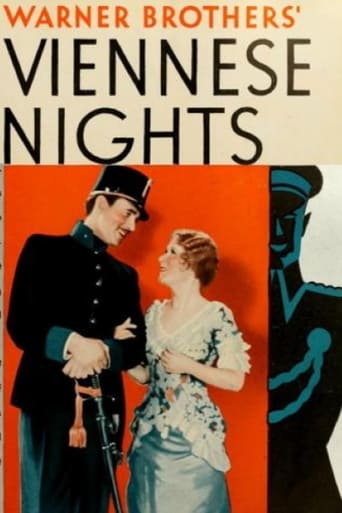




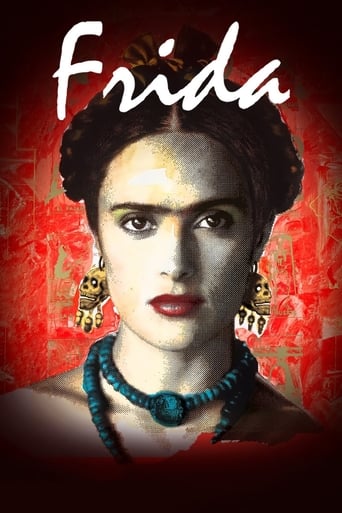


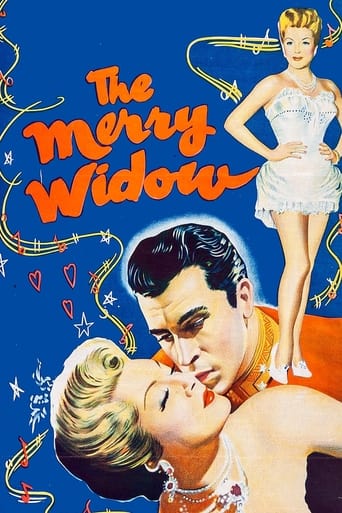
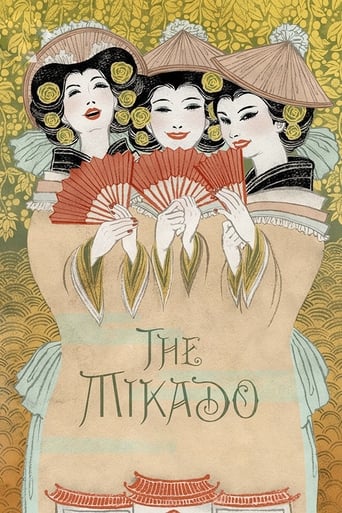
























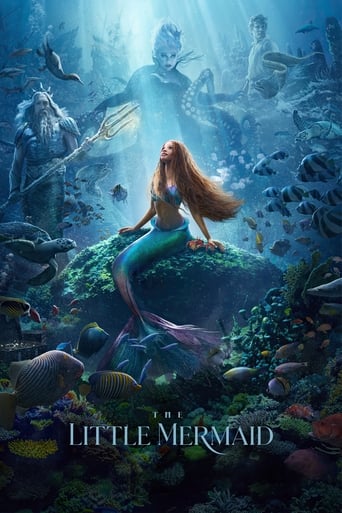
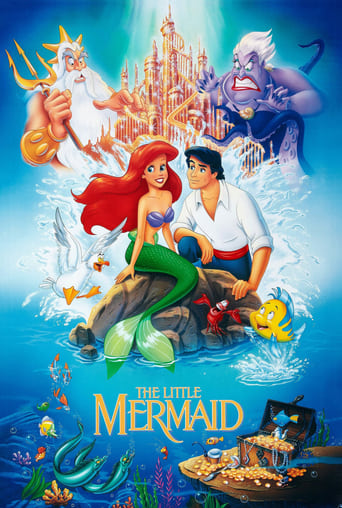

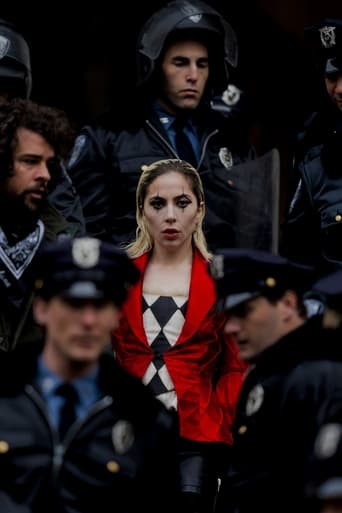

Viennese Spirit
A musical comedy directed by Willi Forst.